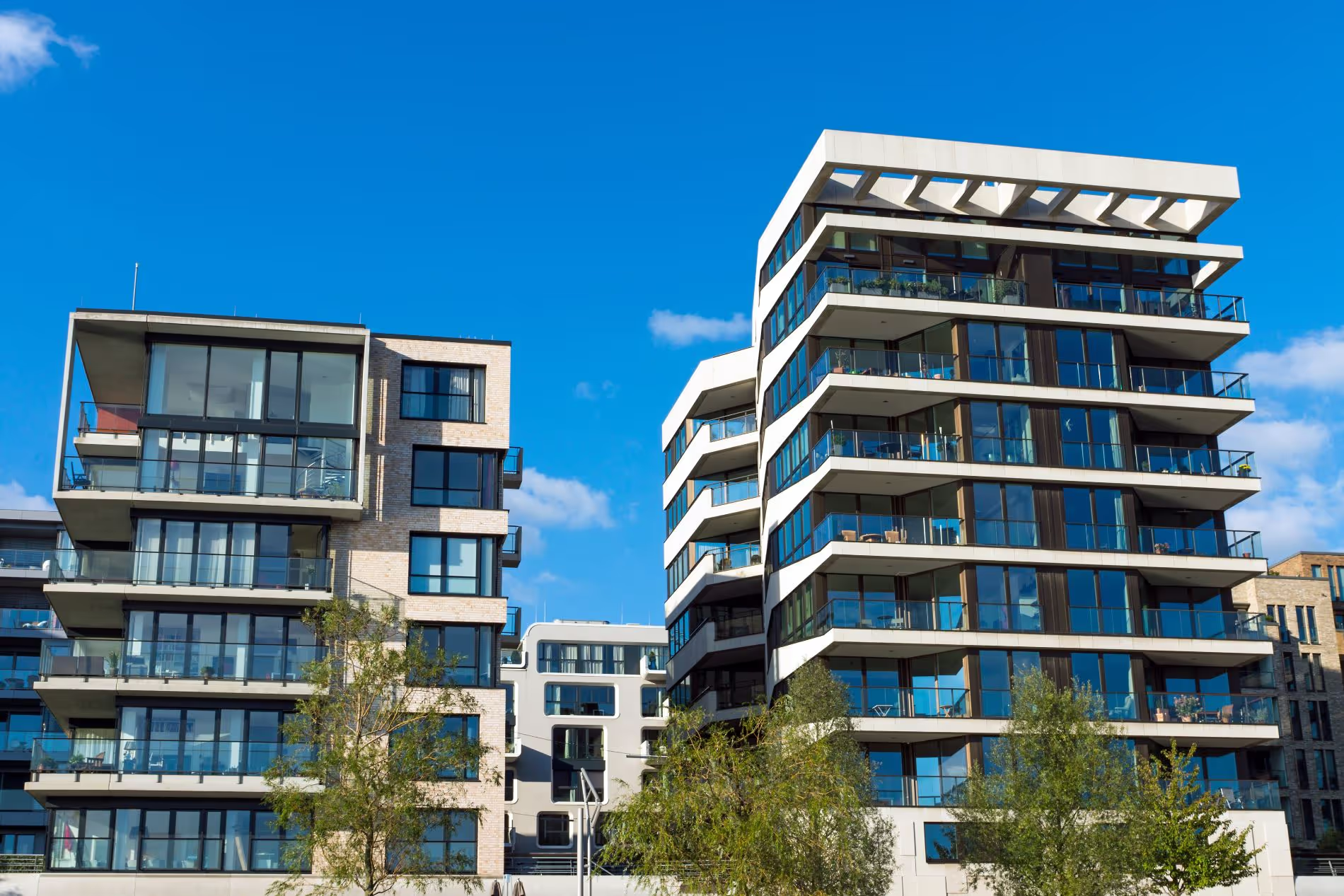The European comparison - How good is German real estate really?

Real estate prices in Germany and other European countries have been rising steadily for several years. At the same time, the returns that can be achieved are becoming smaller. Many investors and investors are therefore wondering whether investing in German real estate is still worthwhile and how it performs compared to other European countries. Here you can find out more about the prices and quality of real estate in Europe.
German real estate — big differences between regions
The trend towards urbanization continues in all European countries. In Germany, Berlin, Hamburg and Munich are particularly affected. So far, there is no end in sight to the rise in real estate prices. Nevertheless, there are major regional differences within Germany and in the various urban areas. While the prices of real estate in the supposedly prime locations are multiplying, the prices for comparable properties in the middle areas of major cities are only rising slowly. For example, the prices for Berlin in very good locations are around 7,300 EUR per square meter, while in mid-range locations they are just 4,920 EUR. There is a similarly large difference in Hamburg, with 9,090 EUR per square meter prices in prime locations, compared with 5,850 EUR in central and peripheral locations. The properties in the less centrally located areas are therefore significantly cheaper with comparable quality, which makes the investment in them worthwhile.
It is also recommended to take a look at the different regions of Germany. Prices are developing more rapidly in the south, meaning that equivalent properties are more expensive here than in the north. You can also see a significant price gap from west to east. In many areas of Thuringia, Saxony, Saxony-Anhalt, Brandenburg and Mecklenburg-Western Pomerania, real estate prices have barely risen in recent years. Especially here and in the so-called “B-cities” of Germany, good returns can still be achieved thanks to low purchase prices.
European prices on the real estate market
Real estate experts are monitoring the development of price adjustments in the real estate market in Europe. Where Germany was the leader in 2017 with 10% purchase price development per year, the Czech Republic and Hungary now lead the list with 16.8% and 13.7%. High prices for European real estate are heading east. The market in Germany is nevertheless booming. Compared to other European countries, you can still get cheap and profitable real estate here. According to a Deloitte study, Germans, Austrians and Norwegians can buy a 70-square-meter apartment with just five to six average annual salaries. In most European countries, people have to dig much deeper into their pockets here. For this reason, Stiftung Warentest in Germany is also advising you to buy real estate now. Compared to the rental costs that arise over the course of a lifetime, buying an apartment or house has still paid off so far.
According to the Deloitte study, it is currently difficult to obtain affordable housing, particularly in the UK. Especially in cities like London, it is no longer possible for the average citizen to buy an apartment or house. As a result of the price explosion for housing driven by investment speculation, every property there is traded as a luxury property. This market segment is currently flourishing — real estate prices in London are over 376% more expensive than the European average.
The contrast between luxury real estate and affordable living space
While luxury real estate in prime locations is flourishing, there is also a shortage of affordable living space. Resolving these tensions is a challenge for all players. In all major European cities, there is a lack of land and sufficient skilled workers to build new apartments. The Deloitte study also examined this important point and found that Austria and France in particular succeeded in driving forward the construction of affordable housing in 2018. By contrast, Spain and Italy were less active in building new apartments — Germany was in the midfield. On the one hand, this item is currently high on the local political agenda; on the other hand, reforms in Germany are being slowed down by a cumbersome bureaucracy system.
Particularly high construction requirements, such as sound insulation and energy standards, result in higher costs and greater effort. Since Germany places great value on the use of high-quality materials, real estate here is also significantly more robust compared to other countries. In the Netherlands, for example, it is more common to use wood when building houses. The costs are therefore lower, but this also reduces the life expectancy of the property. There is one thing in favour of German real estate in this sense: You can rely on impeccable quality when investing in a new property in Germany. Investing in new properties in particular is therefore still worthwhile in Germany.



